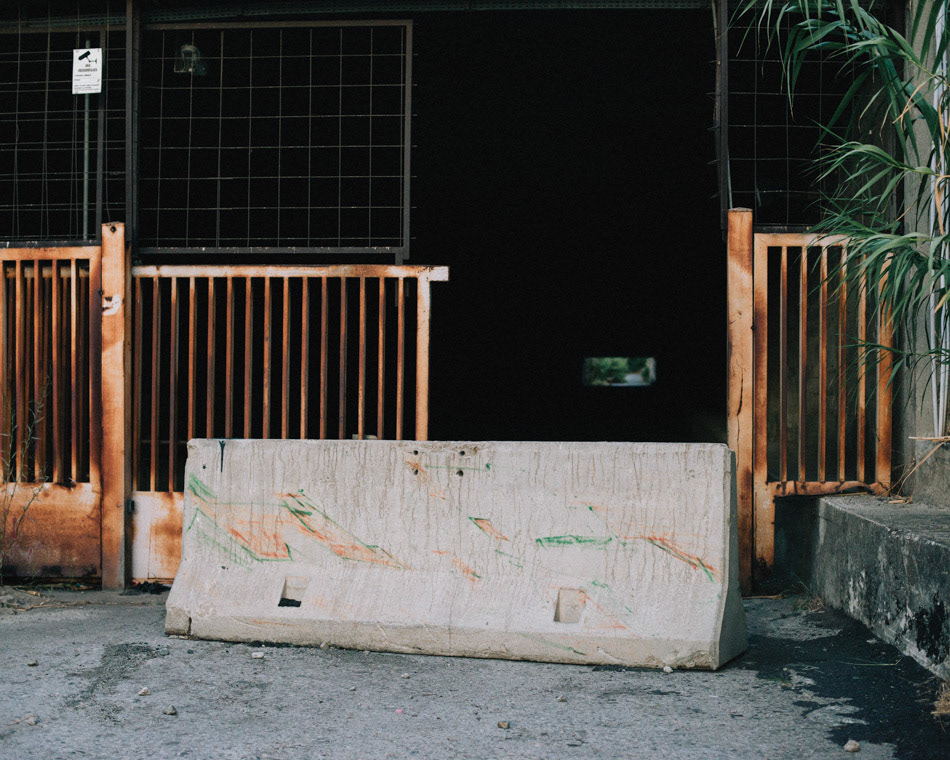2019-2021
I have tried to pitch this story to dozens of national and regional newspapers, from Rome on down many cities are in a similar situation in Italy. But the degradation of the South does not interest, does not sell. I have been told that it is not 'newsworthy'. Maybe it is something that should not be talked about because it should not be solved.
With almost 180.000 inhabitants, Reggio Calabria is the largest and the most populated city of Calabria, a region in southern Italy.
In 2014, in an attempt to comply with Italian laws on waste disposal, it was introduced a door-to-door separate collection named DifferenziAMOla. From 2012 to 2021 the local tax evasion rate increased from about 54% to 84%. More than 150.000 citizens do not pay taxes, including waste taxes. Every single one of this people throws his own trash around the city every day.
The AVR is the holding company that deals with waste collection in Reggio Calabria and six other Italian regions, where it also deals with maintenance, waste disposal and decontamination. In June 2020 it was placed under seizure by mafia association and came under judicial administration.
Almost all of the approved landfills in Calabria are currently closed or full. Despite the periodic extraordinary cleaning operations around the city, the volume of illegally abandoned waste is so large that in fact the big masses are never eliminated. Piles of rubbish of all kinds are burned almost weekly, causing immense environmental damage and poisoning thousands of people.
To date, no politician in office has ever done anything to identify tax evaders, which represent the vast majority of the electorate. The paradoxical consequence is that the cost of waste tax in Reggio Calabria is among the highest in Italy.
To this day the situation has remained substantially unchanged. This is the story of the administrative and social failure of an entire city, marked by the voices and the faces of those who have been suffering this reality for too many years.
In 2014, in an attempt to comply with Italian laws on waste disposal, it was introduced a door-to-door separate collection named DifferenziAMOla. From 2012 to 2021 the local tax evasion rate increased from about 54% to 84%. More than 150.000 citizens do not pay taxes, including waste taxes. Every single one of this people throws his own trash around the city every day.
The AVR is the holding company that deals with waste collection in Reggio Calabria and six other Italian regions, where it also deals with maintenance, waste disposal and decontamination. In June 2020 it was placed under seizure by mafia association and came under judicial administration.
Almost all of the approved landfills in Calabria are currently closed or full. Despite the periodic extraordinary cleaning operations around the city, the volume of illegally abandoned waste is so large that in fact the big masses are never eliminated. Piles of rubbish of all kinds are burned almost weekly, causing immense environmental damage and poisoning thousands of people.
To date, no politician in office has ever done anything to identify tax evaders, which represent the vast majority of the electorate. The paradoxical consequence is that the cost of waste tax in Reggio Calabria is among the highest in Italy.
To this day the situation has remained substantially unchanged. This is the story of the administrative and social failure of an entire city, marked by the voices and the faces of those who have been suffering this reality for too many years.
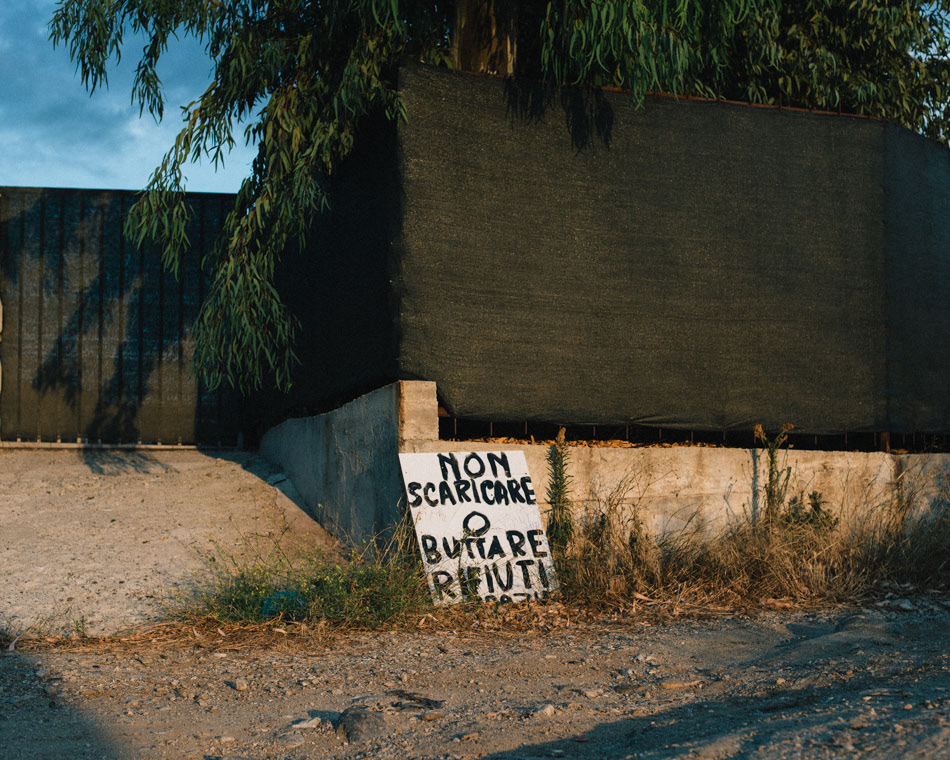
“Don't dump or throw away waste"
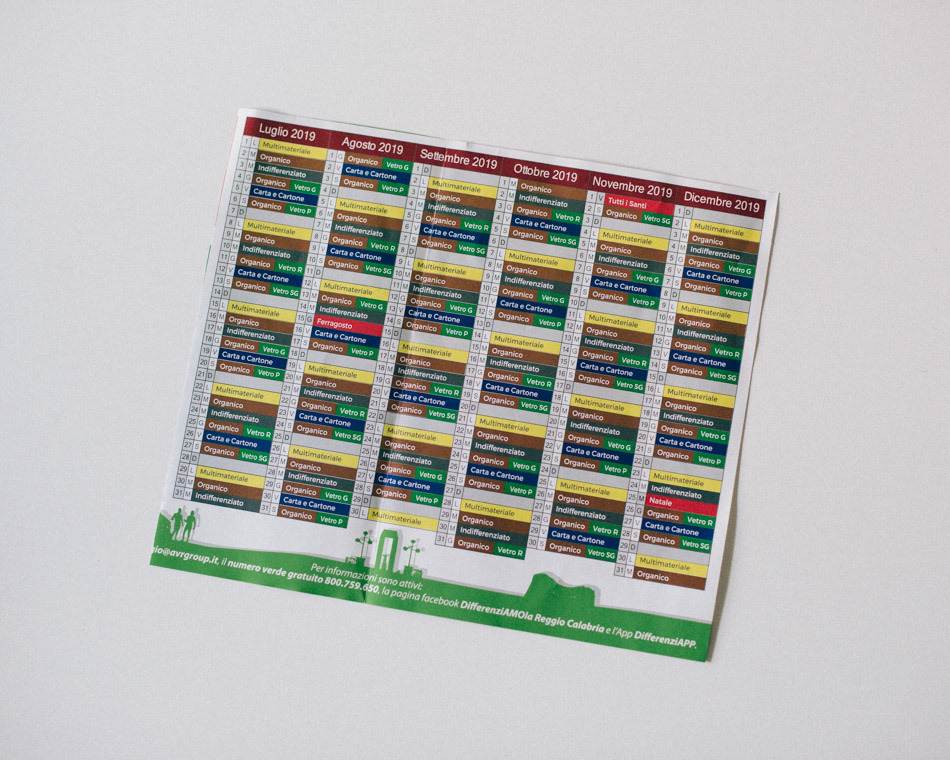
The 2019 recycling collection calendar.
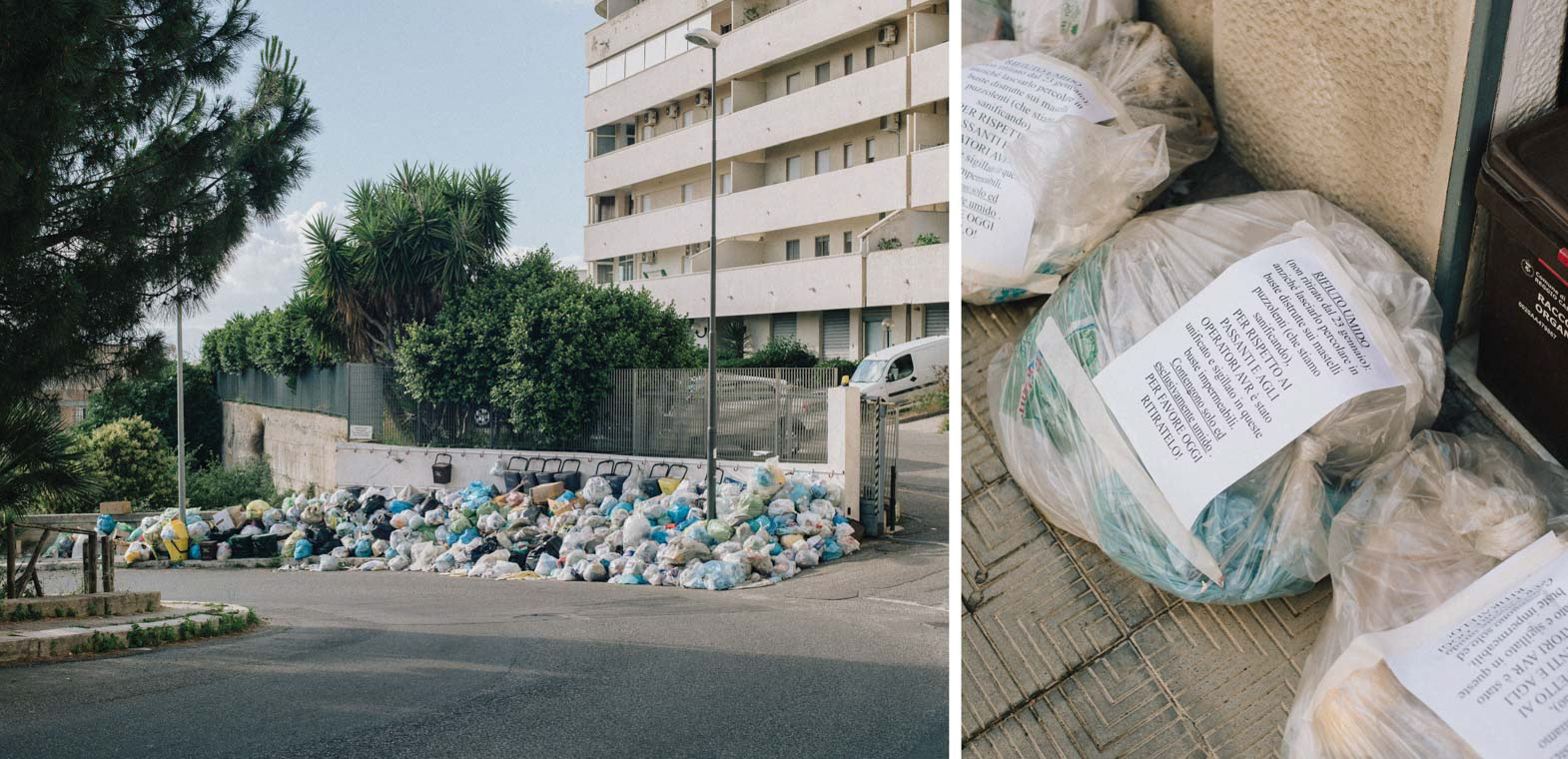
Bags of organic waste not collected for a month. It is not unusual to find messages, such as this one begging the rubbish collectors to pick up the bags.
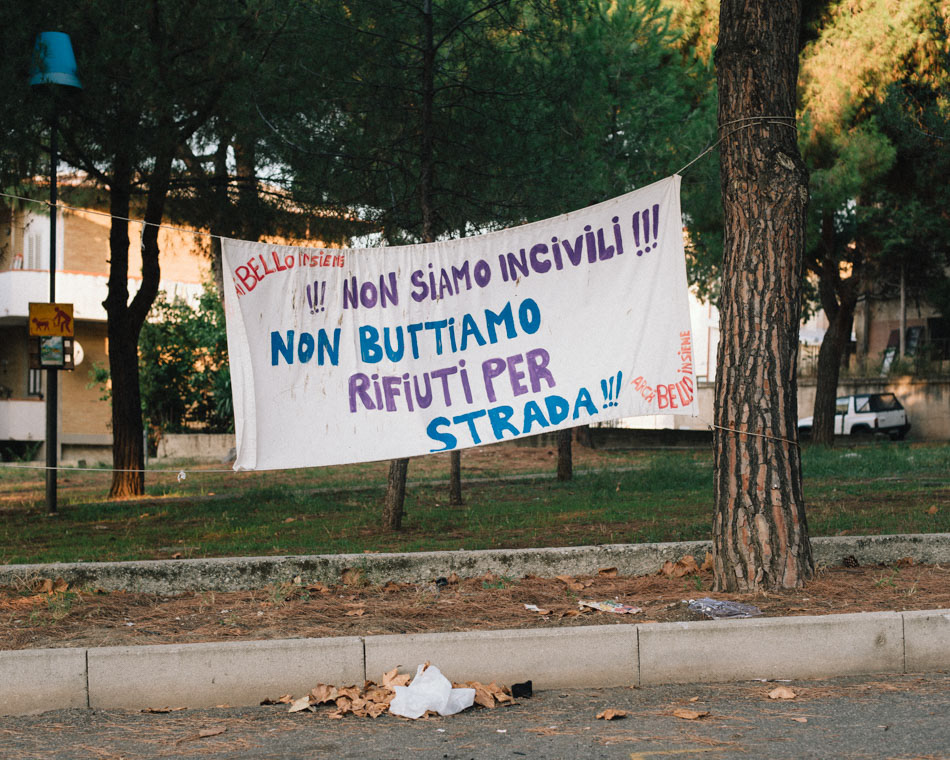
"Let’s not be uncivilized! Let’s not throw garbage on the street!”
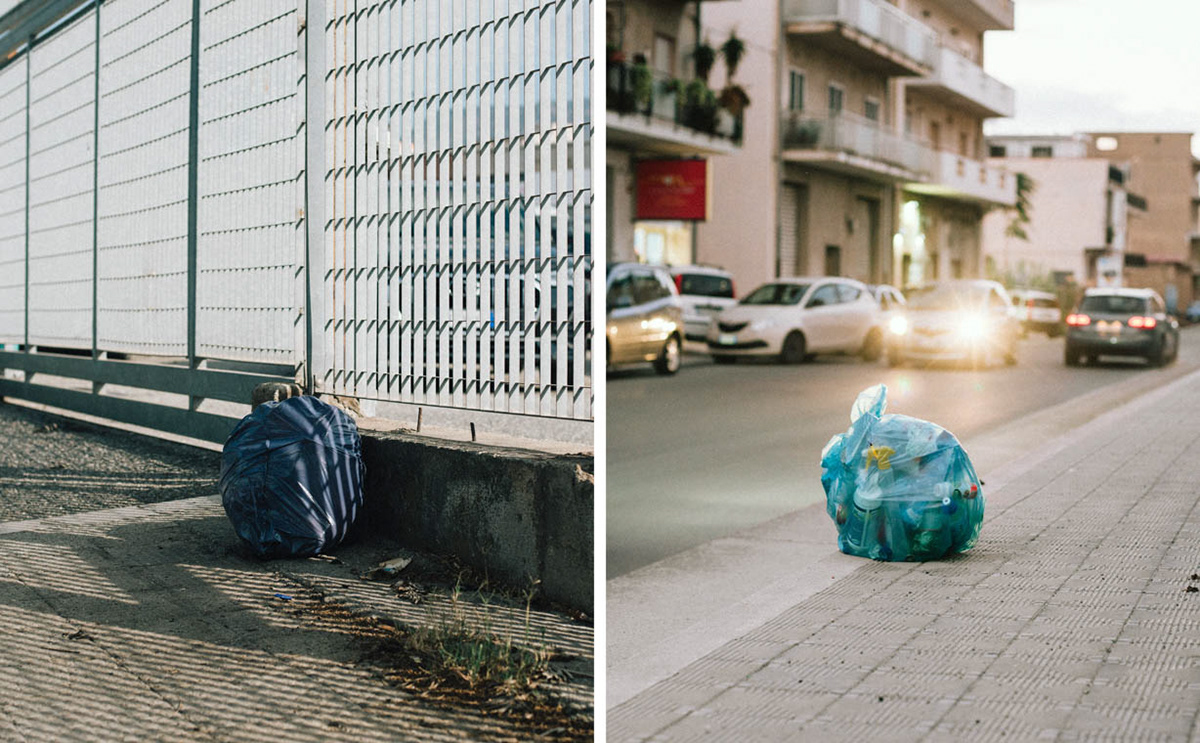
Single abandoned bags can be found almost anywhere throughout the city.
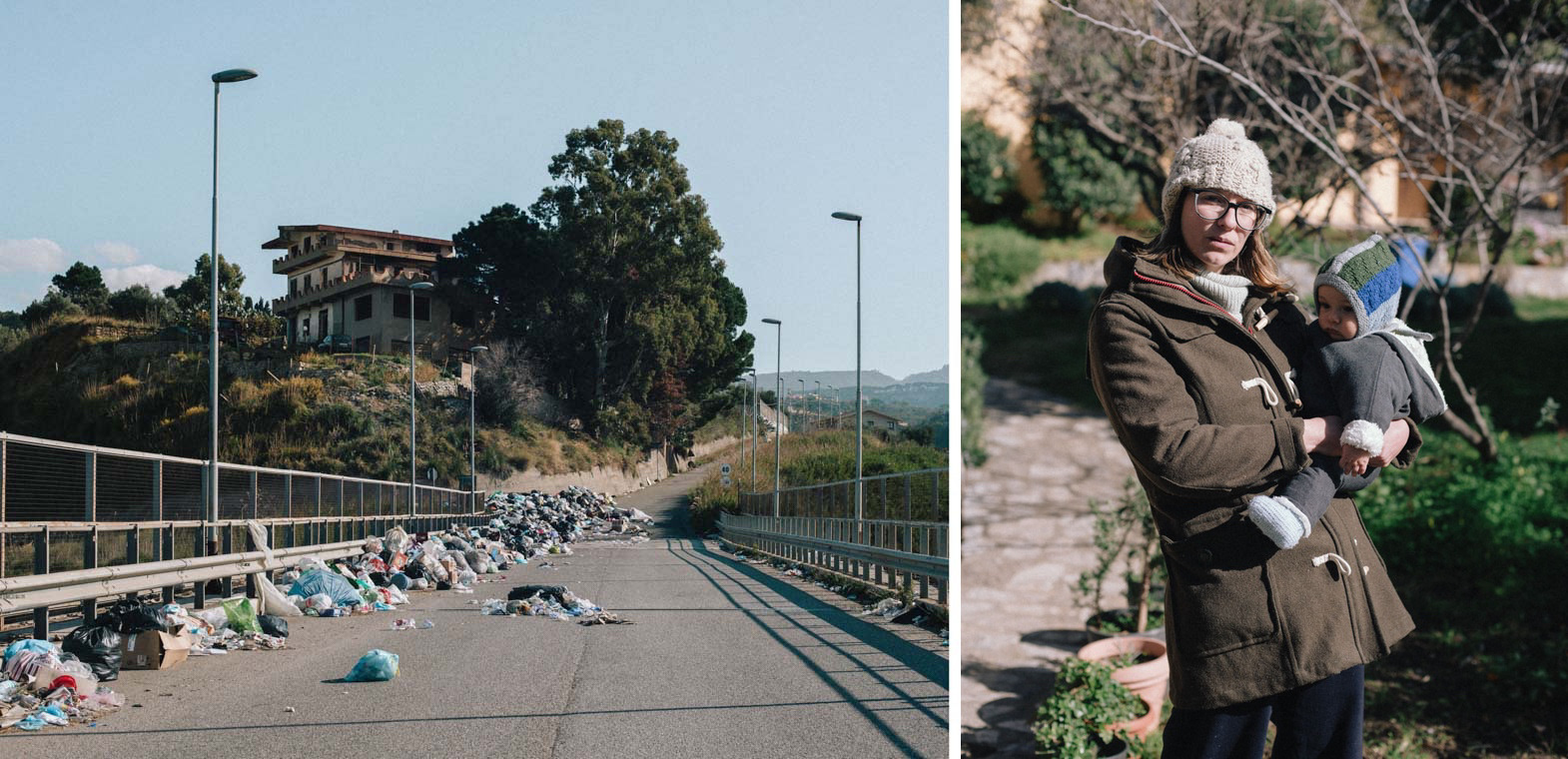
The three dumpsters 100 m from my house and a portrait of my wife and my son.
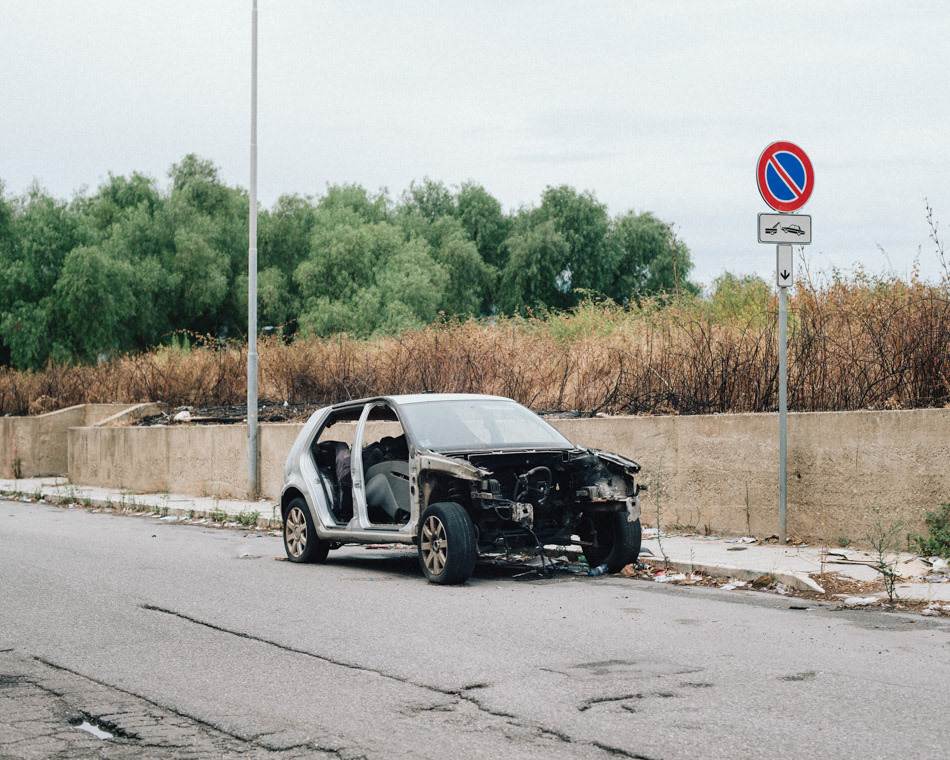
A wrecked and burned car, abandoned on the street.
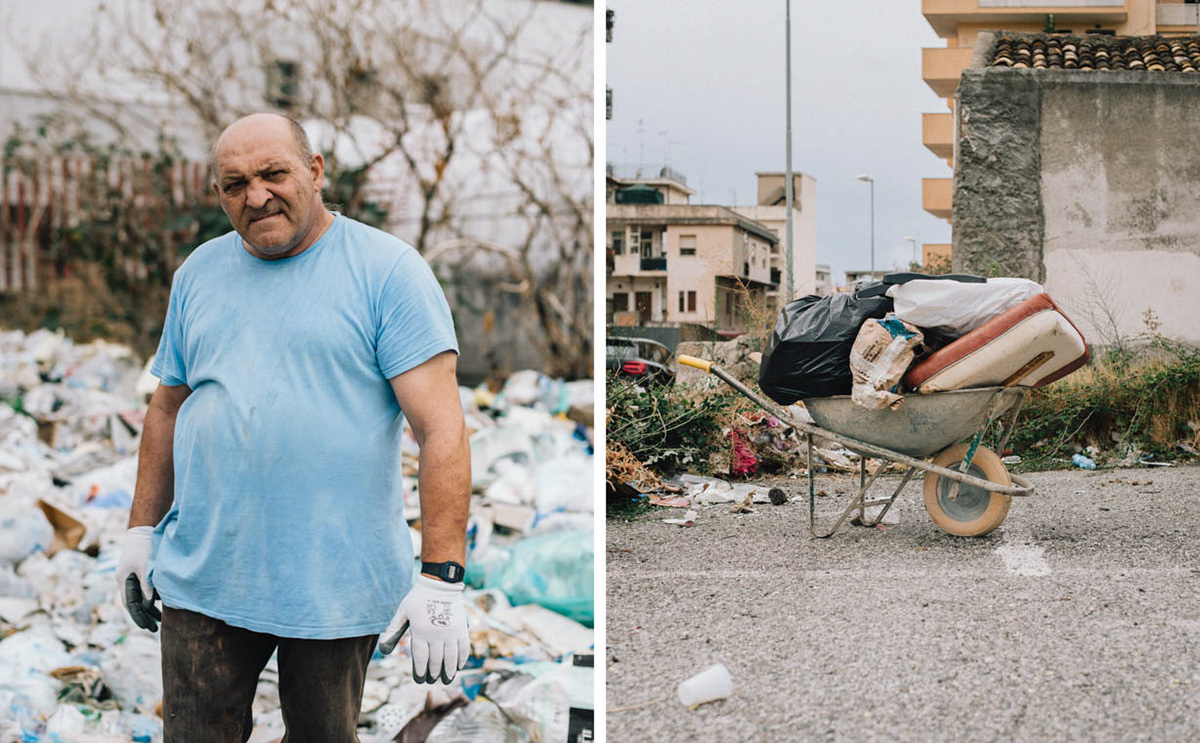
Mr. D., a cancer patient, while cleaning on his own initiative a supermarket parking lot.
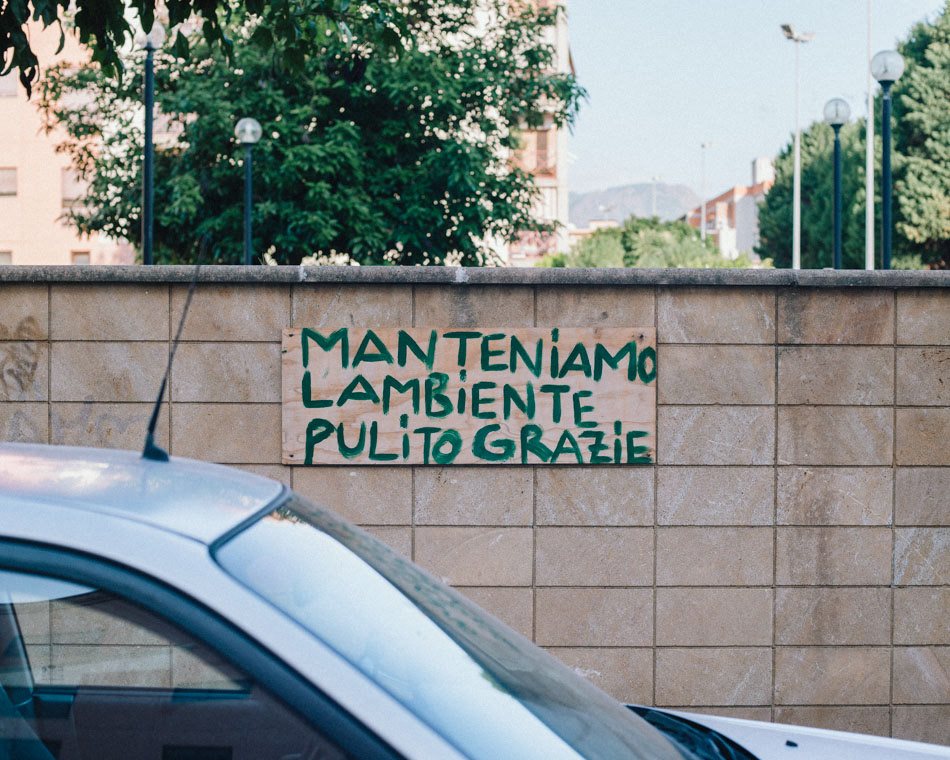
“Keep the environment clean thanks”
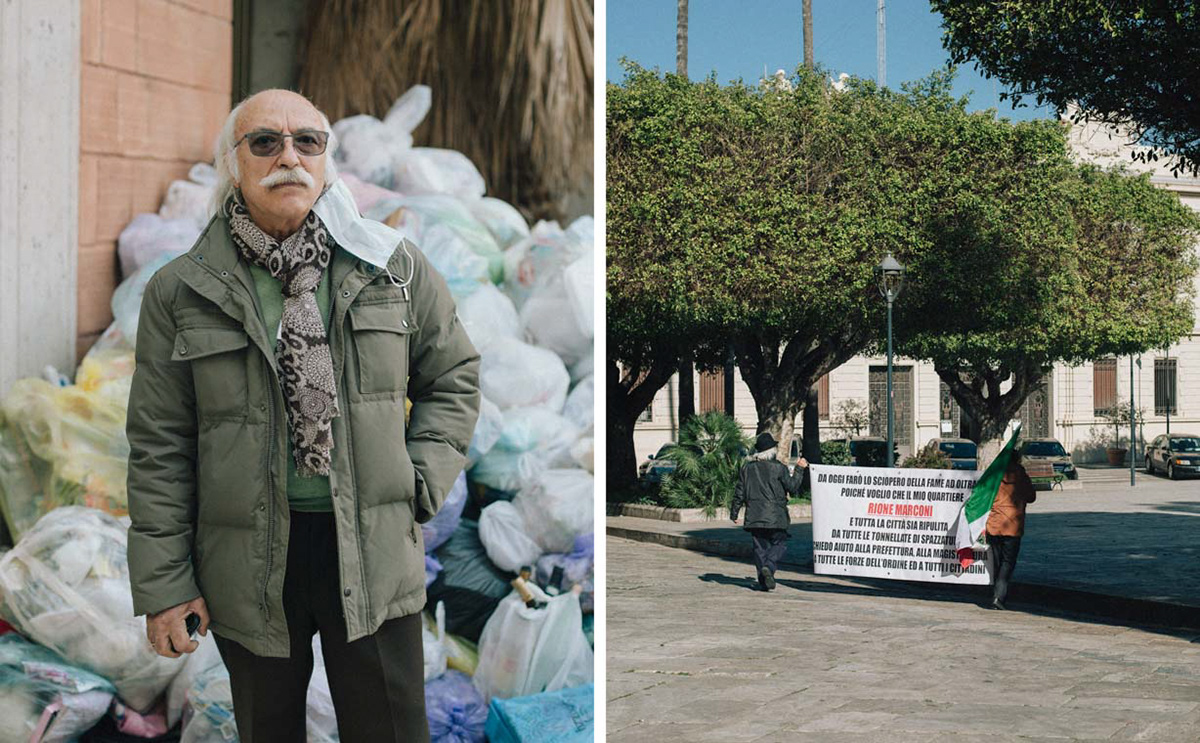
Mr. Crucitti on his doorstep and with his wife, demonstrating in front of the Prefect and the City Council. Due to their protests they have suffered retaliations in the neighbourhood.
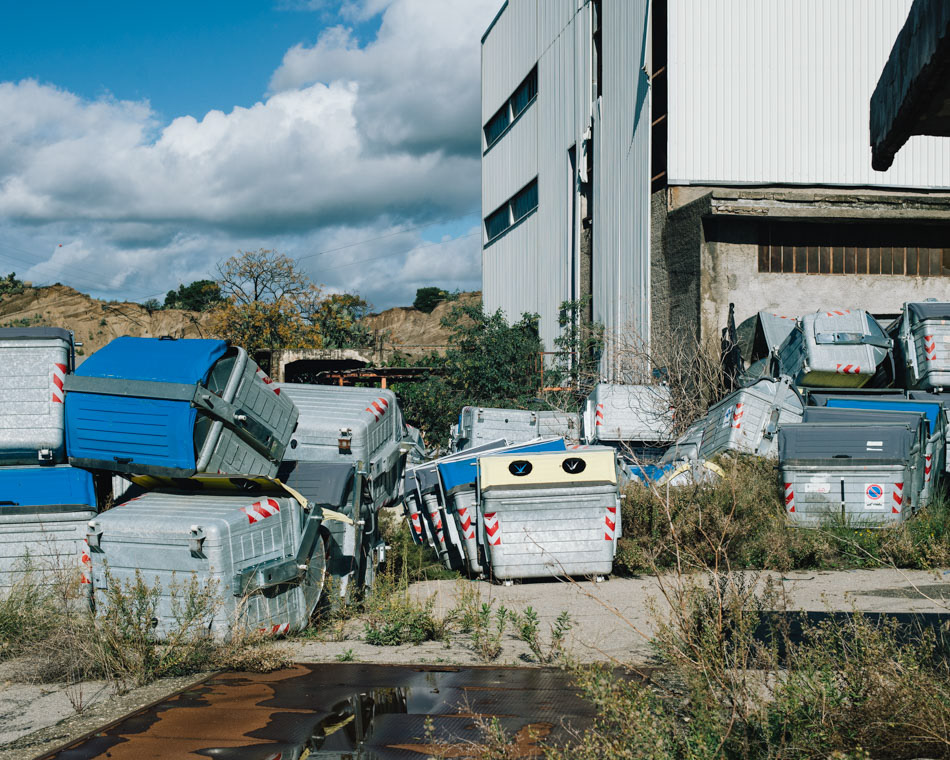
The city's only incinerator, operated by a German company between the 60s and 70s, abandoned following retaliation and threats by the gangs that managed the transport of waste to external collection centres.
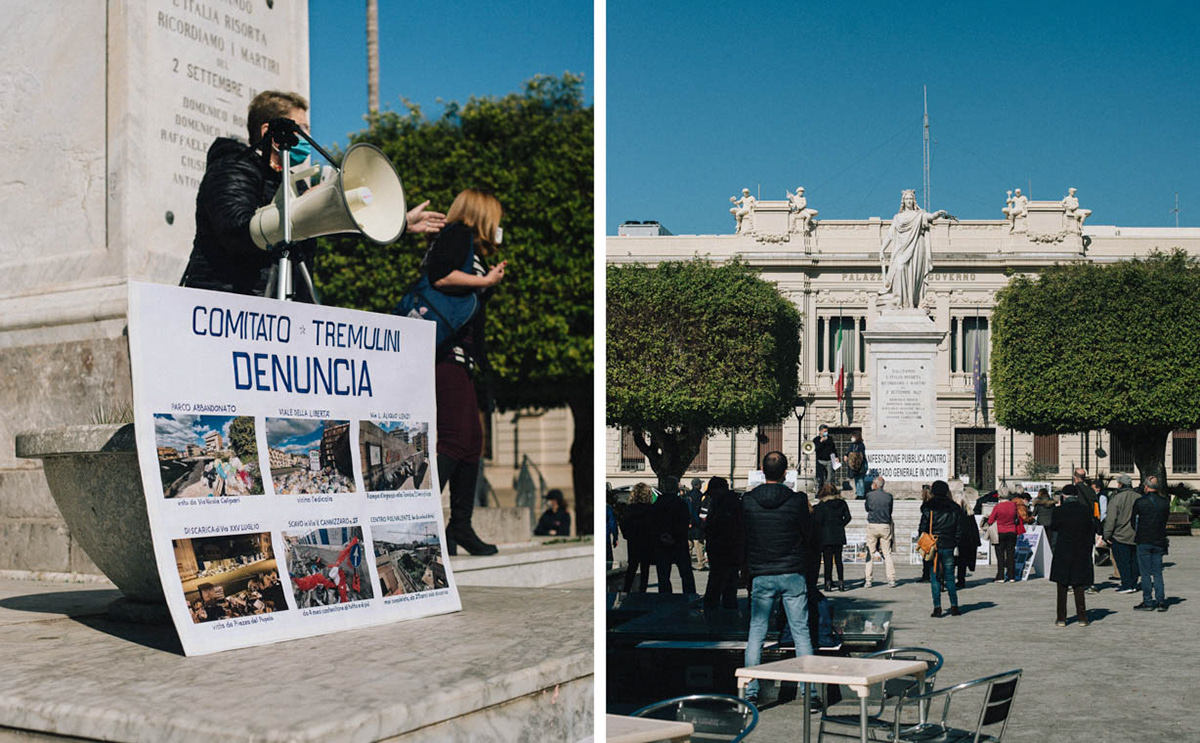
A demonstration against the general degradation in front of the Prefect and the City Council. Public participation at these types of events is always very low.
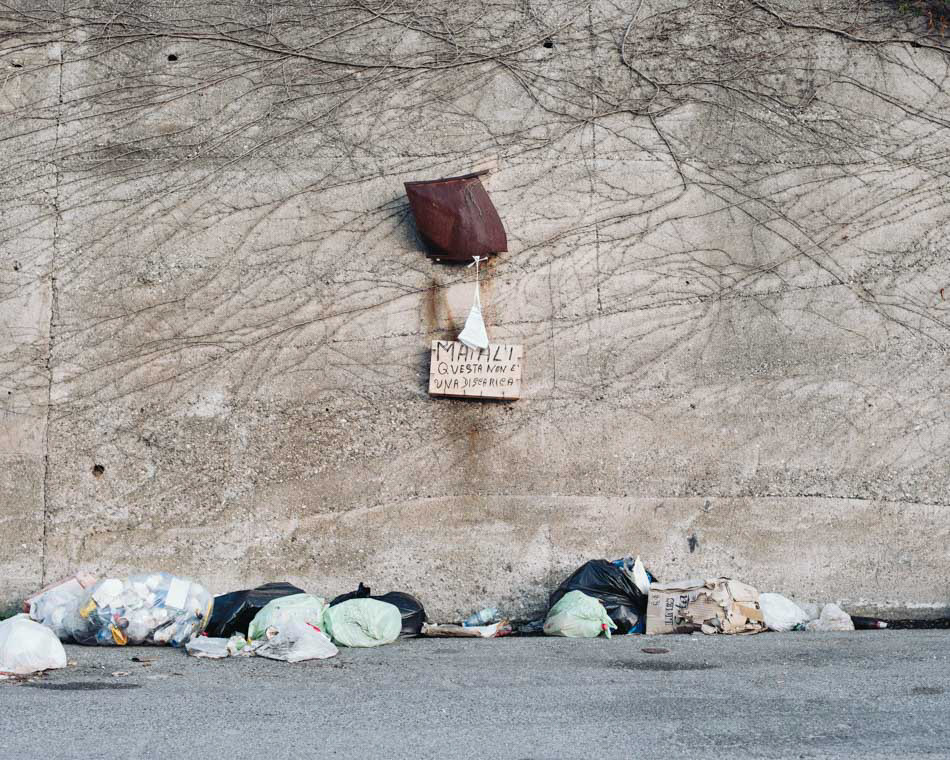
“Swines, this is not a landfill"
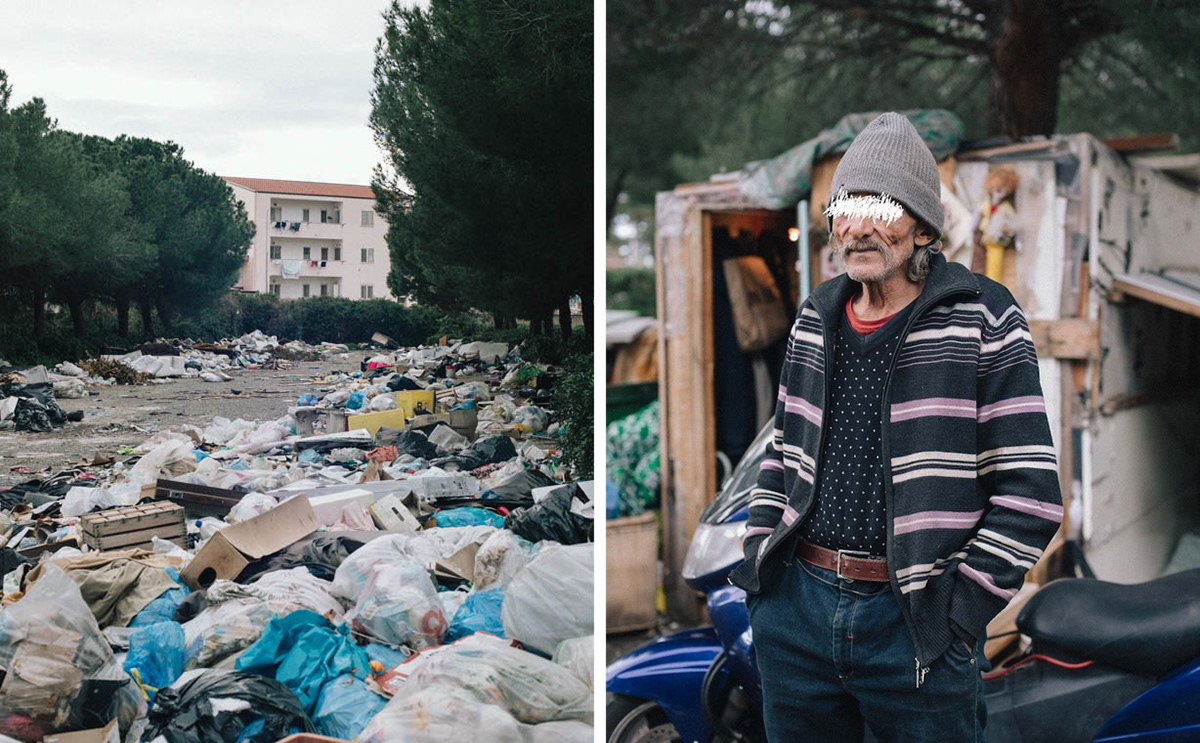
The parking lot of the municipal cemetery, near the city center. Mr. M. pose in front of his hut built from garbage recovered parts, where he has been living for two years.
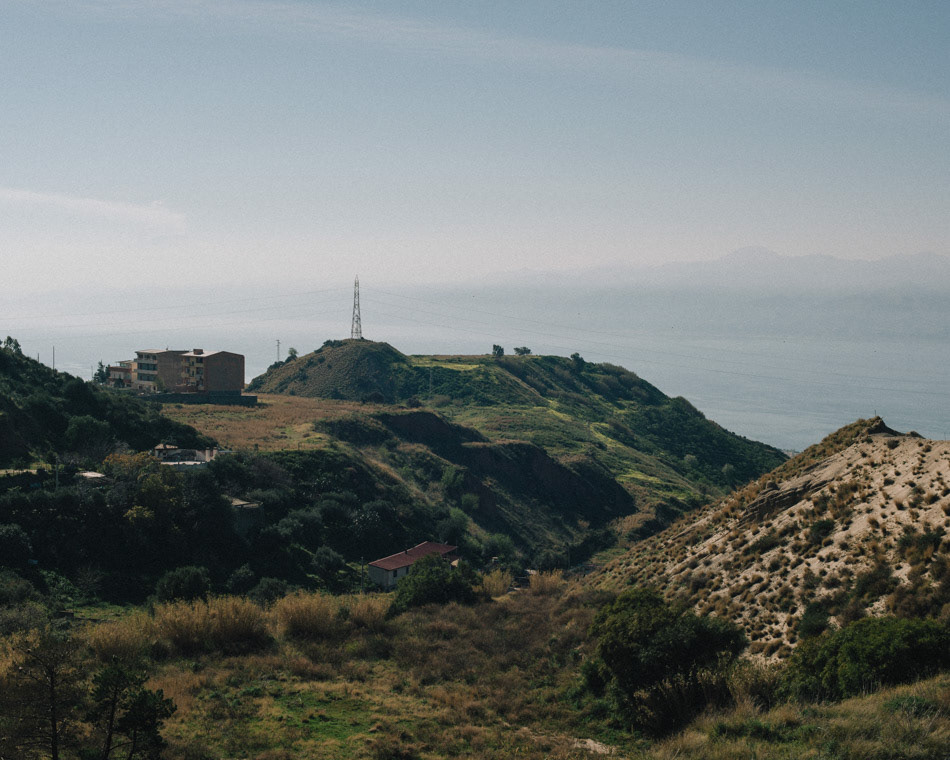
The "Hill of the Angels" is a huge pile of garbage and toxic waste that has become a real plateau. Created between the 60s and 90s by local gangs, it still releases hazardous sewage, causing cancer and leukaemia around the area.
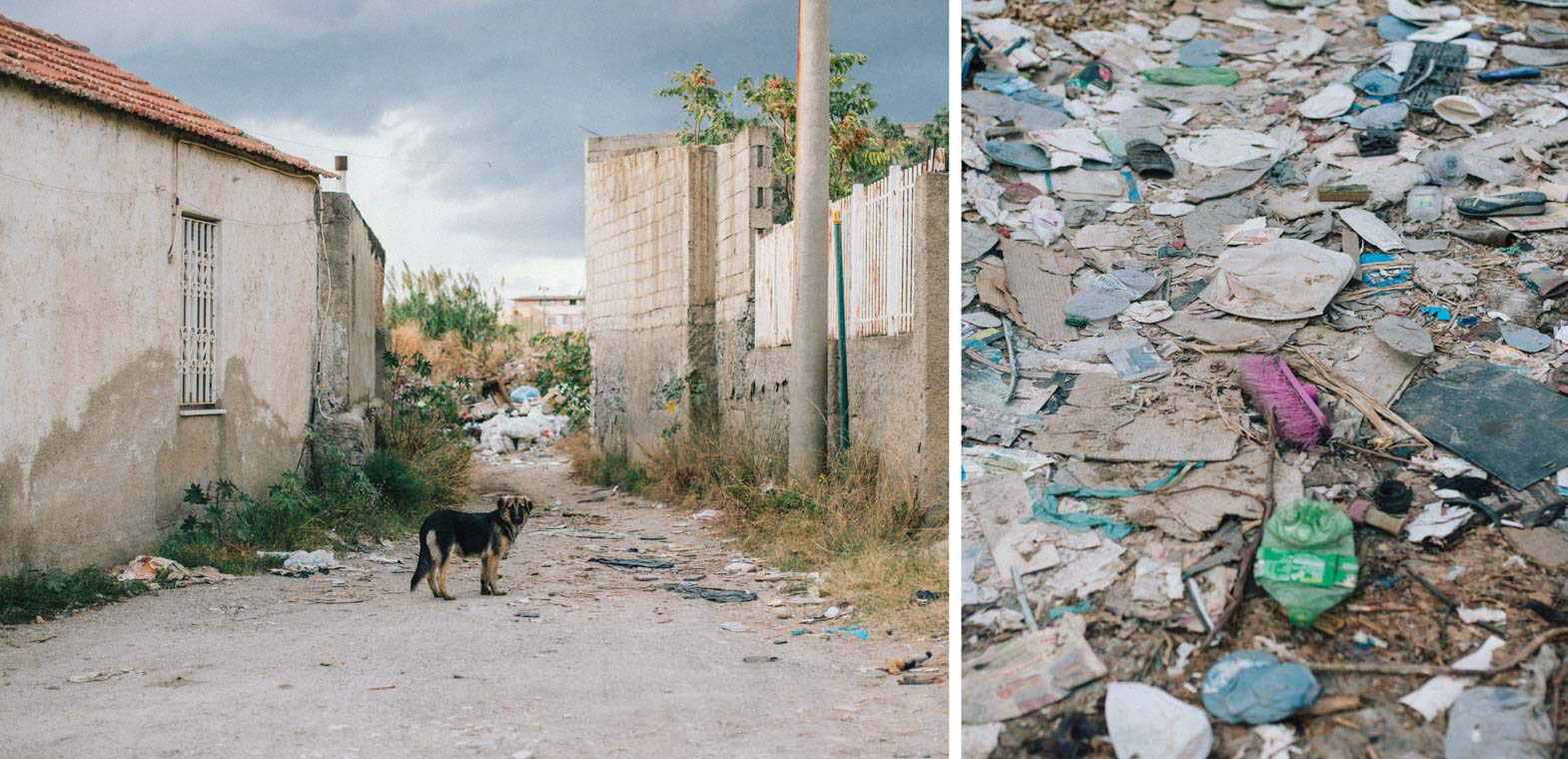
The entrance of the road that crosses the Menga dry river, a dump like all the rivers in the city. A detail of the road, practically paved with waste.
